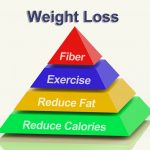Do you want to live a long and fulfilling life? We all do. But have you ever stopped to think about what role nutrition plays in our longevity?
Just like a car needs the right fuel to run efficiently, our bodies need the right nutrients to function properly. Nutrient-rich foods and supplements can help you live longer, healthier lives.
Think of your body as a garden that needs proper nourishment to grow and thrive. The food we eat provides the building blocks for our cells, tissues, organs, and systems. By choosing nutrient-dense options like fruits, vegetables, whole grains, lean proteins, and healthy fats, we can promote optimal health and prevent chronic diseases such as heart disease, diabetes, cancer, and Alzheimer’s.
In this article, we’ll explore some of the key nutrients that can help you extend your lifespan by improving your overall health.
The Importance of Nutrient-Rich Foods
 You’ll be thrilled to know that eating delicious and nutrient-rich foods is key to improving your health and increasing your chances of a longer life. Incorporating superfoods into your diet is an excellent way to get the essential vitamins, minerals, and antioxidants you need for optimal health.
You’ll be thrilled to know that eating delicious and nutrient-rich foods is key to improving your health and increasing your chances of a longer life. Incorporating superfoods into your diet is an excellent way to get the essential vitamins, minerals, and antioxidants you need for optimal health.
Some examples of superfoods include blueberries, spinach, kale, salmon, nuts, and seeds. Eating these types of foods regularly can help protect against chronic diseases such as cancer and heart disease.
Nutrient dense meal planning is another important aspect of incorporating healthy foods into your diet. This means choosing whole foods that are high in nutrients but low in calories. Examples include vegetables, fruits, lean proteins, whole grains, and healthy fats like avocados and olive oil.
By focusing on nutrient-dense foods instead of calorie-dense ones like processed snacks or fast food meals can help reduce the risk of obesity-related diseases.
Incorporating more nutrient-rich foods into your diet doesn’t have to be difficult or boring either! Experiment with new recipes using fresh ingredients or try swapping out unhealthy snacks for healthier options like roasted nuts or sliced veggies with hummus dip.
By making small changes over time towards a more nutritious diet can make a significant impact on your overall health and longevity.
Antioxidants and Their Role in Longevity
If you want to boost your chances of living longer, antioxidants are a must-have in your daily diet. These powerful nutrients counteract the effects of free radicals, which can cause damage to your cells and contribute to aging and disease.
Fortunately, many superfoods are rich in antioxidants, including berries, leafy greens, nuts, and spices like turmeric.
One of the key ways that antioxidants promote longevity is by reducing inflammation in the body. Chronic inflammation has been linked to a wide range of health problems, from heart disease and cancer to Alzheimer’s and arthritis. By neutralizing free radicals that trigger inflammation, antioxidants can help keep your tissues healthy and reduce your risk of these conditions.
In addition to eating antioxidant-rich foods, you may also benefit from taking supplements like vitamin C or E or resveratrol. However, it’s important to remember that getting nutrients from whole foods is always preferable to relying on supplements alone.
When combined with other healthy lifestyle choices like regular exercise and stress reduction techniques, consuming plenty of antioxidants can play an important role in promoting longevity and overall wellness.
Omega-3 Fatty Acids and Their Benefits
Omega-3 fatty acids are incredibly important for maintaining optimal health. Studies show that a diet rich in these fats can reduce the risk of heart disease by up to 30%.
These essential fatty acids play a vital role in brain function and may help prevent chronic diseases such as cancer, arthritis, and depression. The recommended intake for adults is at least two servings of fatty fish per week or taking supplements containing EPA and DHA.
Dietary sources of omega-3 include fatty fish like salmon, tuna, and mackerel, chia seeds, flaxseeds, and walnuts. Incorporating these foods into your diet can provide you with the necessary amount of this essential nutrient.
However, if you’re not a fan of seafood or have dietary restrictions that limit your consumption of certain foods – supplements are also a good option to consider.
The benefits of omega-3s on longevity cannot be ignored. They have been shown to improve heart health, decrease inflammation throughout the body, and support healthy aging.
By incorporating more omega-3s into your diet through food sources or supplementation – you can reap the rewards for years to come!
Vitamin D and Its Impact on Health
Vitamin D, a critical nutrient synthesized by the body through exposure to sunlight, is essential for maintaining healthy bones and muscles, regulating insulin levels, reducing the risk of certain cancers and autoimmune diseases, and promoting overall well-being.
However, vitamin D deficiency is common worldwide due to inadequate sun exposure and low dietary intake. Some sources of vitamin D include fatty fish like salmon and tuna, egg yolks, mushrooms, and fortified foods like milk and cereals.
Research suggests that low levels of vitamin D are associated with an increased risk of several health issues such as osteoporosis, rickets in children, muscle weakness, depression, heart disease and respiratory infections.
Vitamin D supplementation has been shown to improve bone density in older adults with osteoporosis. Additionally, it may also help fight off upper respiratory tract infections including influenza A & B viruses.
It’s important to get enough but not too much Vitamin D as excessive intake can lead to hypercalcemia which can be harmful to your kidneys or other organs. Consult with a healthcare professional about your individual needs before taking any supplements.
Therefore, ensuring adequate intake of vitamin D through diet or supplements may not only help you live longer but also improve the quality of life in later years as well.
Probiotics and Gut Health for Longevity
Get ready to embrace the power of good bacteria, because probiotics are here to keep your gut healthy and happy for many years to come. Probiotics are a type of live bacteria that can provide numerous health benefits, including enhancing digestion, boosting immunity, and reducing inflammation.
They work by increasing microbiome diversity in your gut, which is essential for maintaining overall wellness. Fermented foods like yogurt, kefir, sauerkraut, kimchi, and tempeh are excellent sources of probiotics. These foods contain live cultures that can help populate your gut with beneficial bacteria.
You should aim to consume at least one serving of fermented food per day to ensure optimal gut health. If you have trouble incorporating these foods into your diet or if you need a more potent dose of probiotics, you may want to consider taking a supplement. Taking a high-quality probiotic supplement can help replenish the good bacteria in your gut and boost your immune system.
Look for supplements that contain multiple strains of bacteria and at least 10 billion CFUs (colony forming units) per serving. It’s also important to choose a reputable brand and consult with your healthcare provider before starting any new supplement regimen.
By adding fermented foods or taking a probiotic supplement regularly, you can improve your gut health and increase longevity potential!
How much of each nutrient should I consume to promote longevity?
To promote longevity, it’s important to balance your nutrient intake. Each nutrient plays a crucial role in maintaining overall health and well-being. However, the amount of each nutrient needed varies depending on factors such as age, gender, and activity level.
It’s important to keep dietary restrictions in mind when planning your meals. For example, those with lactose intolerance may need to find alternative sources of calcium. Consulting with a registered dietitian can help ensure that you’re getting the right balance of nutrients for your individual needs and goals.
Can supplements alone provide enough nutrients for longevity?
Supplements can be a quick and easy way to get the nutrients you need, but can they alone provide enough for longevity?
While supplements can offer benefits such as improved immune function, increased energy, and reduced inflammation, relying solely on them may come with potential risks.
Supplements lack the synergy of whole foods and may not contain all necessary nutrients or in the proper balance.
Additionally, some supplements have been found to interact negatively with medications or cause adverse effects in high doses.
While supplements can be helpful additions to a balanced diet, it’s important to also prioritize whole foods for optimal health and longevity.
Are there any foods or supplements that should be avoided for longevity?
To maximize your longevity, it’s important to avoid certain foods and supplements.
Processed foods are one of the biggest culprits of poor health and can increase your risk for chronic diseases like heart disease, diabetes, and cancer.
To avoid processed foods, try sticking with whole, unprocessed options like fruits, vegetables, lean proteins, and whole grains.
Additionally, many sugar alternatives on the market have been linked to negative health effects such as gut disturbances and increased inflammation.
It’s best to limit or avoid these sweeteners altogether and opt for natural sweeteners like honey or maple syrup in moderation.
By avoiding processed foods and limiting sugar alternatives in your diet, you can help promote longevity by reducing your risk for chronic diseases.
How does the quality of the food I consume impact its ability to promote longevity?
Are you aware that the quality of the food you consume plays a crucial role in promoting longevity?
Organic vs. processed foods can make a significant difference in your health and lifespan. Eating organic, whole foods, free from harmful chemicals and pesticides, provides your body with essential nutrients necessary for optimal function.
On the other hand, processed foods lack nutrient bioavailability due to additives and preservatives added during processing. As a result, consuming these foods regularly can lead to chronic diseases such as diabetes and heart disease, ultimately shortening your life expectancy.
Therefore, it’s essential to prioritize high-quality organic foods over processed options for a long and healthy life.
Can a healthy diet alone guarantee a longer lifespan, or are other factors at play?
To guarantee a longer lifespan, it’s not just about having a healthy diet. Other factors such as lifestyle and environment also play a significant role in promoting longevity.
Making positive lifestyle choices like exercising regularly, getting enough sleep, and managing stress can all contribute to living a longer life.
Additionally, environmental influences such as air pollution and exposure to toxins can impact health and potentially shorten lifespan.
While nutrition is important, it’s essential to consider the overall picture of one’s lifestyle and environment when striving for longevity.
So, you’ve learned about the importance of nutrient-rich foods and how antioxidants, omega-3 fatty acids, vitamin D, and probiotics can all contribute to longevity.
But let’s face it – who wants to live forever anyway? You might as well indulge in that greasy burger or sugary treat because what’s the harm in living a little shorter?
Of course, we’re just kidding. The truth is that while genetics play a role in how long you’ll live, your lifestyle choices have an even greater impact.
So why not make those choices count by fueling your body with nutritious foods and supplements? Who knows – maybe you’ll end up living longer than you ever thought possible.









